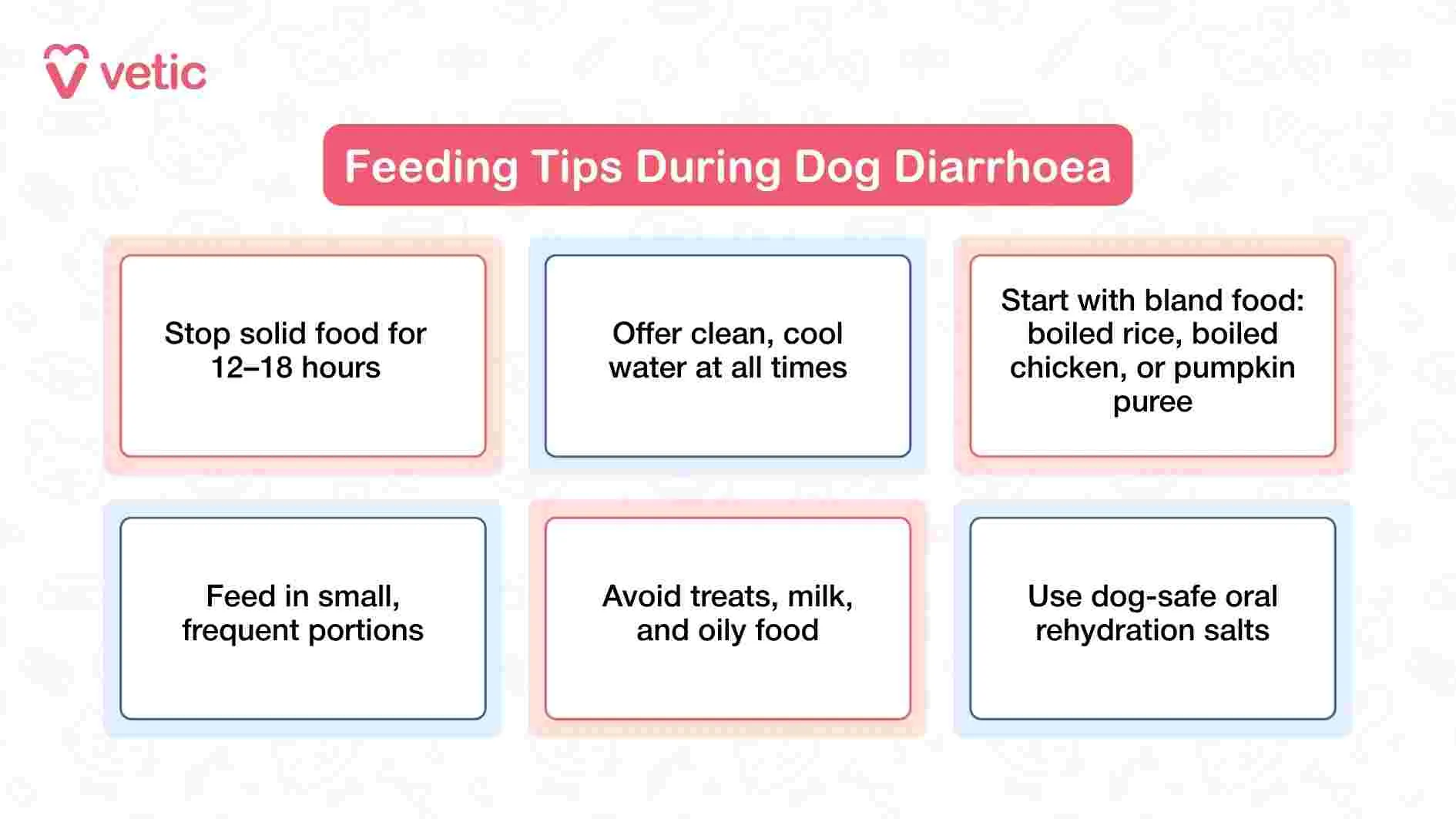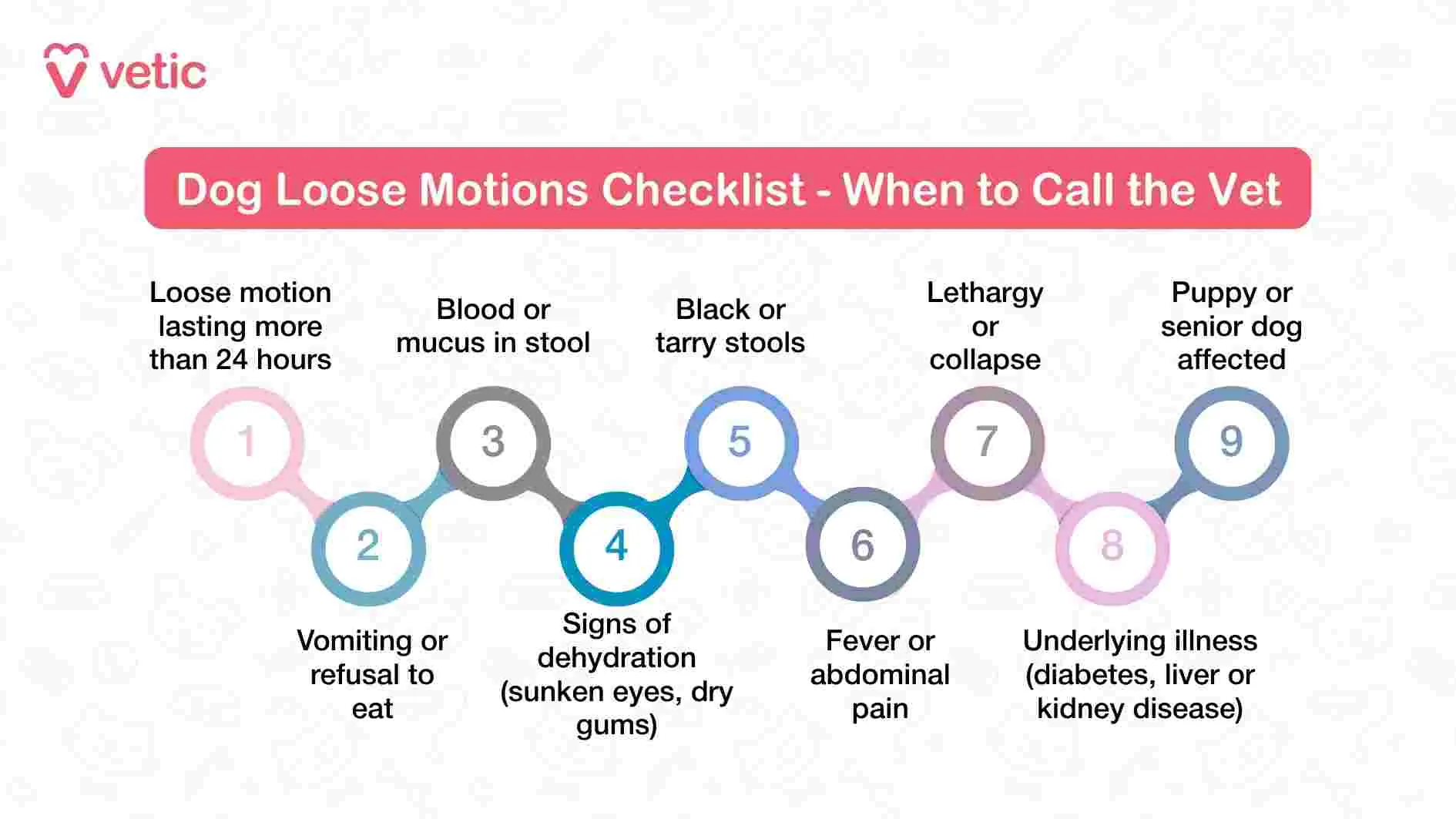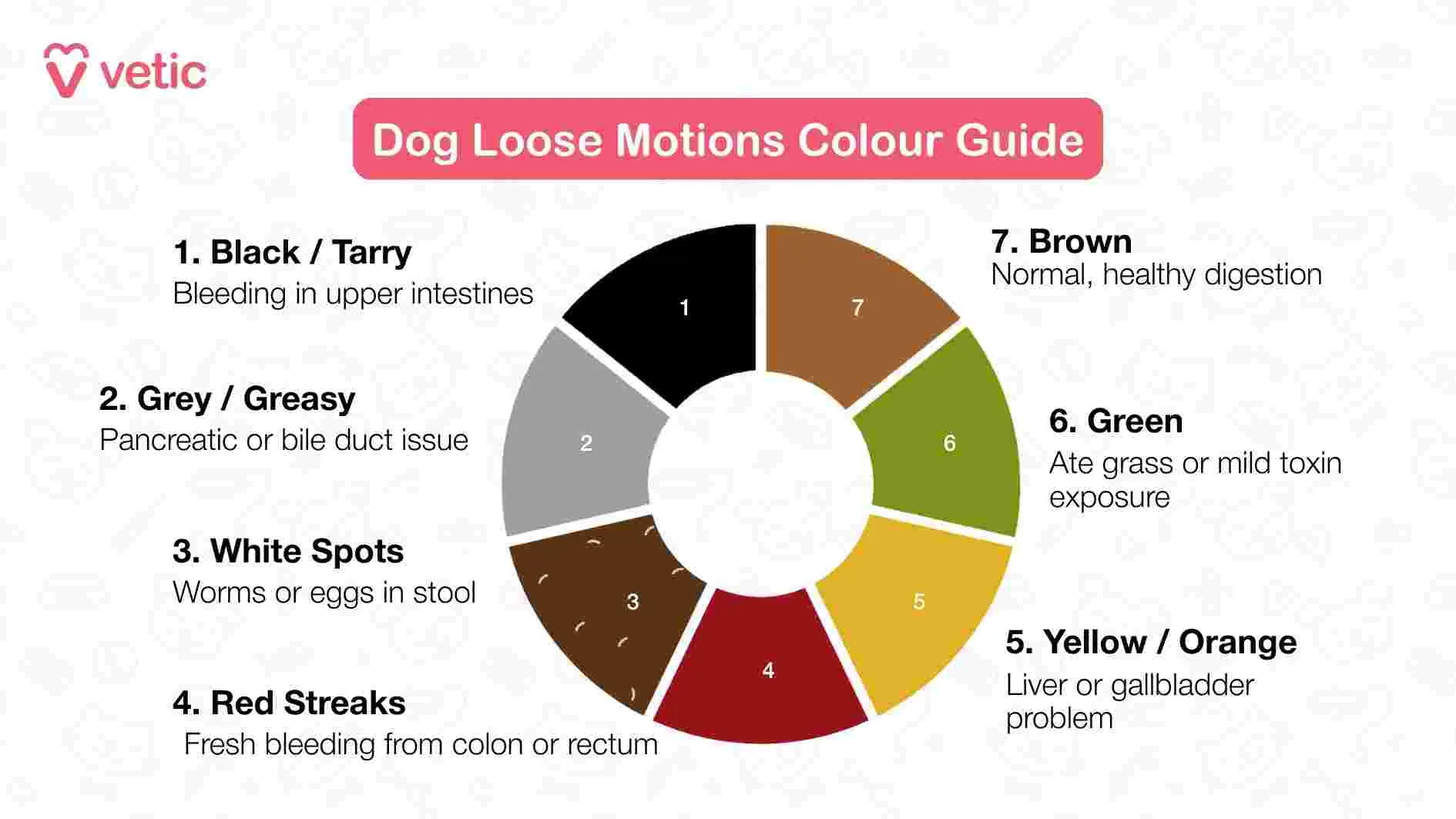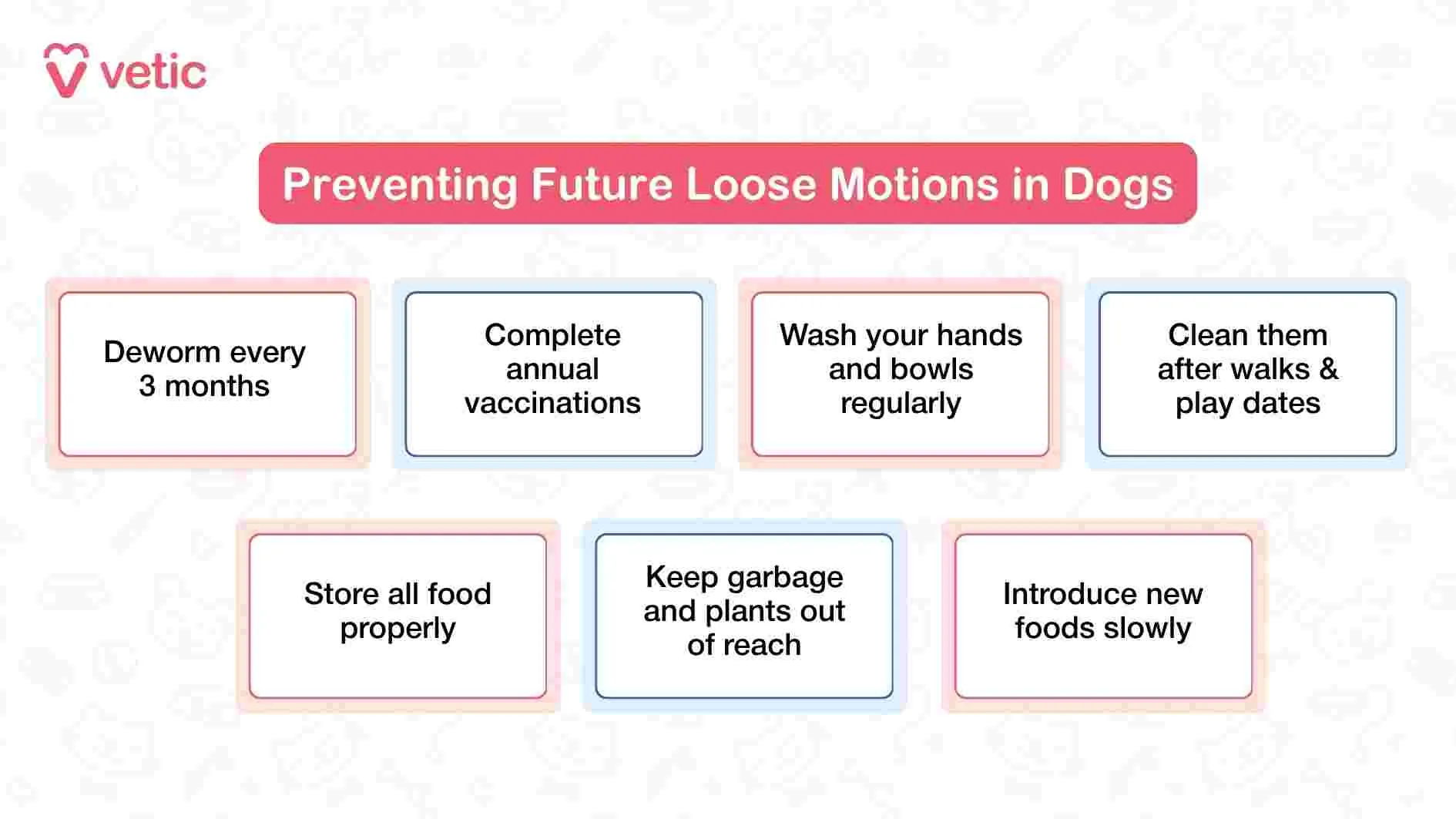Loose motion, or diarrhea, in dogs is a common concern for pet parents, ranging from a mild inconvenience to a sign of serious underlying health issues. While a bout of watery stool might seem harmless, persistent or severe diarrhea can quickly lead to dehydration and other complications. Understanding the appropriate steps, including when and which Medicine For Dog Loose Motion might be necessary, is crucial for your pet’s recovery. This guide, brought to you by Dog Care Story, will walk you through the causes, home care, and most importantly, when to seek veterinary advice for treating your dog’s digestive upset. Remember, responsible pet care always starts with professional guidance.
Understanding Loose Motion in Dogs: Common Causes
Diarrhea in dogs can stem from various sources, from simple dietary mishaps to complex medical conditions. It occurs when the digestive system becomes irritated, leading to rapid passage of stool, reduced water absorption, and often, an imbalance in gut bacteria. Most mild cases of loose motion resolve within 24 to 48 hours with proper care. However, any persistent, severe, or recurring episodes demand immediate veterinary attention to prevent serious health risks.
Some of the most frequently observed causes for loose motions in dogs include:
- Sudden changes in diet or food sensitivities.
- Ingestion of spoiled food, garbage, or non-food items.
- Parasitic infections (worms, Giardia, Coccidia).
- Bacterial or viral infections.
- Stress, anxiety, or major environmental changes.
- Underlying chronic illnesses affecting organs like the liver, pancreas, or intestines.
A visit to the veterinarian, often involving a simple blood test or stool analysis, can accurately pinpoint the cause and guide the most effective treatment plan.
When is Medicine for Dog Loose Motion Necessary?
When your dog is experiencing loose motion, your primary focus should be on their comfort and preventing dehydration. While some mild cases might respond to dietary adjustments and supportive care, specific medicine for dog loose motion is often necessary, but it should always be administered under the strict guidance of a veterinarian. Self-medicating your dog can be dangerous, as human medications can be toxic or have incorrect dosages for canines.
Your veterinarian may consider various types of medication based on the diagnosis:
- Probiotics and Prebiotics: These are often the first line of defense, especially for mild cases or after antibiotic use. Probiotics introduce beneficial bacteria to the gut, helping to restore a healthy microbial balance. Prebiotics act as food for these good bacteria. They are particularly helpful if the loose motion is due to dietary upset or stress.
- Anti-diarrhoeal Suspensions: These are specific formulations designed for dogs, containing ingredients that can help slow down gut motility or absorb toxins, thereby firming up the stool. Unlike human anti-diarrheals, canine-specific versions are formulated with appropriate dosages and ingredients safe for dogs. They are typically used for acute, non-infectious diarrhea.
- Oral Rehydration Salts (ORS): Diarrhea leads to significant fluid and electrolyte loss. ORS are vital for preventing or treating dehydration by replenishing essential salts and water. These are not a direct medicine for loose motion but a crucial supportive therapy.
- Antibiotics: If the loose motion is caused by a bacterial infection (e.g., Salmonella, E. coli), antibiotics will be prescribed. It is paramount that these are given only when a bacterial cause is confirmed by a vet, as unnecessary antibiotic use can contribute to antibiotic resistance and further upset the gut flora.
- Anti-parasitic Drugs: If parasitic infestations like worms, Giardia, or Coccidia are identified through a stool test, specific anti-parasitic medications will be prescribed to eliminate the culprits. Regular deworming, as advised by your vet, can also prevent many cases of parasitic loose motion.
- Anti-inflammatory Medications: For conditions like Inflammatory Bowel Disease (IBD) or severe colitis, your vet might prescribe anti-inflammatory drugs to reduce inflammation in the gut lining.
It is critical to reiterate: never give your dog human medications without explicit veterinary instruction. The dosage, active ingredients, and potential side effects differ significantly, and what is safe for humans can be harmful or even fatal for dogs. Always consult your vet to determine the best medicine for dog loose motion and the correct treatment plan.
Your Dog Has Loose Motions. What Can They Eat?
When your dog is suffering from loose motions, their intestines are inflamed and sensitive. Offering bland, easily digestible meals can help soothe their stomach and prevent further irritation, aiding the recovery process.
 A visually informative infographic from Vetic presenting six essential feeding tips for dogs experiencing diarrhea. Each tip is housed within a distinct box, offering clear and concise guidance on managing a dog's diet during digestive upset. The advice ranges from temporary food withholding and constant fresh water supply to recommending bland food options like boiled chicken, rice, and pumpkin puree. It also includes warnings against treats and oily foods, and highlights the benefit of dog-safe oral rehydration salts.
A visually informative infographic from Vetic presenting six essential feeding tips for dogs experiencing diarrhea. Each tip is housed within a distinct box, offering clear and concise guidance on managing a dog's diet during digestive upset. The advice ranges from temporary food withholding and constant fresh water supply to recommending bland food options like boiled chicken, rice, and pumpkin puree. It also includes warnings against treats and oily foods, and highlights the benefit of dog-safe oral rehydration salts.
Begin by withholding all solid food for 12–18 hours. This allows your dog’s digestive system to rest and recover. Always ensure they have constant access to fresh, clean water to prevent dehydration. After the fasting period, gradually reintroduce food with these gentle options:
- Plain Boiled Chicken Breast: Remove all skin and bones, and boil the chicken without any seasonings or spices. Shred it into small, easily digestible pieces.
- White Rice or Boiled Potatoes: Plain white rice (cooked until soft) or boiled, mashed potatoes (without butter or seasonings) are excellent sources of carbohydrates and are gentle on the stomach.
- Plain Pumpkin Puree: Not pumpkin pie filling! Pure canned pumpkin (ensure it’s 100% pumpkin) is rich in fiber and can help firm up your dog’s stool. Start with a small amount (1-2 tablespoons for a medium dog).
- Plain Unsweetened Yogurt: Some vets recommend plain unsweetened yogurt (without xylitol) for its probiotic benefits, but check with your vet first, especially if your dog is lactose intolerant.
Offer small, frequent meals rather than one large portion. This reduces the burden on their compromised digestive system. Continue to monitor your dog closely. If they vomit after eating, refuse food, or if the watery stool persists or worsens, stop feeding and contact your veterinarian immediately. They may recommend specific prescription diets or further medical intervention.
12 Common Causes of Loose Motions in Dogs
Understanding the specific causes can help pet parents take preventive measures and respond appropriately when their dog experiences loose motions.
1. Eating Garbage or Table Scraps
Dogs are notorious for their scavenging habits. Ingesting spoiled food from the trash, rotten leftovers, or even rich human table scraps can rapidly upset their digestive system, leading to what’s often termed garbage toxicosis or dietary indiscretion.
2. Sudden Dietary Changes
A quick transition from one dog food brand to another, or for puppies, a sudden switch from milk to solid food, can overwhelm a dog’s digestive system. Their gut needs time to adjust to new proteins and ingredients, making gradual changes crucial.
3. Dietary Intolerance or Food Allergies
Just like humans, some dogs can have intolerances or allergies to specific ingredients like lactose, gluten, or certain protein sources. This can manifest as chronic loose motion, skin issues, or other digestive upsets. A veterinarian can help identify these through elimination diets.
4. Parasites
Intestinal parasites are a very common cause of loose motion, particularly in puppies or dogs not on a regular deworming schedule. Roundworms, hookworms, Giardia, and Coccidia are some of the culprits that irritate the gut lining, leading to diarrhea.
5. Toxins and Poisons
Many common household items and human foods are toxic to dogs. Onions, garlic, chocolate, grapes, raisins, and artificial sweeteners like xylitol can cause severe gastrointestinal distress, vomiting, diarrhea, and even life-threatening organ damage.
6. Poisonous Plants
A surprising number of indoor and outdoor plants are toxic to dogs. Ingesting parts of plants like aloe vera, dieffenbachia, sago palm, or oleander can cause digestive irritation and lead to significant loose motion. Always research plants before bringing them into your home or garden.
7. Swallowing a Foreign Body
Dogs, especially puppies, can be prone to swallowing non-food items like toys, socks, or bones. These foreign bodies can cause partial or complete intestinal blockages, leading to vomiting, abdominal pain, and often, severe diarrhea as the body tries to pass the obstruction. This is a medical emergency.
8. Bacterial Infections
Consuming contaminated water, raw or undercooked meat, or coming into contact with infected feces can expose dogs to harmful bacteria like Salmonella or E. coli. These infections typically cause watery diarrhea, vomiting, and abdominal pain, often requiring a course of antibiotics.
9. Viral Infections
Unvaccinated puppies are highly susceptible to severe viral infections such as Canine Parvovirus, Canine Distemper, and Coronavirus. These viruses attack the gastrointestinal tract, causing severe, often bloody diarrhea, vomiting, lethargy, and can be fatal without immediate veterinary care and hospitalization.
10. Chronic Illnesses
Persistent or recurrent loose motion can be a symptom of more serious underlying chronic conditions. These include liver disease, kidney disease, pancreatic disorders (like pancreatitis or exocrine pancreatic insufficiency), or Inflammatory Bowel Disease (IBD). Diagnostic tests are essential for these conditions.
11. Antibiotics
While essential for treating bacterial infections, antibiotics can sometimes disrupt the natural balance of beneficial bacteria in a dog’s gut. This can lead to temporary diarrhea or soft stools. Probiotics are often recommended alongside antibiotics to help mitigate this side effect.
12. Stress and Anxiety
Emotional stress can have a significant impact on a dog’s digestive system. Conditions like “stress colitis” are common during events such as travel, visits to the vet, loud noises (fireworks), or major changes in routine. Anxiety-induced loose motion usually resolves once the stressor is removed.
Recognizing Warning Signs: When to Contact Your Veterinarian
While occasional loose motion can often be managed at home, it’s vital to know when to seek professional help. Early intervention can prevent minor issues from becoming severe, especially for puppies, senior dogs, or those with existing health conditions.

Contact your veterinarian immediately if your dog exhibits any of the following symptoms alongside loose motion:
- Continuous vomiting or refusal to eat: This can quickly lead to severe dehydration and nutrient deficiencies.
- Lethargy, weakness, or collapse: Signs that your dog is seriously unwell and may be experiencing severe dehydration or pain.
- Blood or black, tarry streaks in stool: Fresh blood indicates bleeding in the lower GI tract, while black, tarry stool (melena) suggests bleeding higher up – both are emergencies.
- High fever or abdominal pain: These can indicate a serious infection or inflammatory process.
- Signs of dehydration: Sunken eyes, sticky or dry gums, loss of skin elasticity (skin tenting), and a dry nose are all red flags.
- Significant weight loss or abdominal bloating: Can be indicative of chronic or severe underlying conditions.
- Diarrhea lasting more than 24 hours: Even if other symptoms are mild, prolonged diarrhea warrants veterinary assessment.
- Your dog is a puppy or a senior dog: Their immune systems are more vulnerable, and they can dehydrate much faster.
- Your dog has underlying health conditions: Such as diabetes, kidney disease, or liver issues, as diarrhea can exacerbate these.
Checklist for pet parents: If diarrhea lasts more than 24 hours, if your dog has underlying diseases (diabetes, kidney disease, or liver issues), or if your pet is very young or old, it’s always best to check in with a veterinary professional. Delaying treatment can cause severe dehydration and electrolyte imbalance, which may require IV fluids and hospitalization.
Deciphering Dog Poop Colors: What They Indicate
The color and consistency of your dog’s loose motion can offer valuable clues about what’s happening internally, guiding your vet towards a diagnosis and the most effective medicine for dog loose motion.
 A circular diagnostic chart from Vetic that visually maps different dog stool colors to potential underlying health issues. Each segment of the circle is labeled with a distinct color, such as black, grey, white spots, red streaks, yellow, orange, and green, alongside its corresponding medical implication. The chart clearly indicates that only brown stool is considered normal, providing a quick visual reference for pet parents to assess their dog's digestive health.
A circular diagnostic chart from Vetic that visually maps different dog stool colors to potential underlying health issues. Each segment of the circle is labeled with a distinct color, such as black, grey, white spots, red streaks, yellow, orange, and green, alongside its corresponding medical implication. The chart clearly indicates that only brown stool is considered normal, providing a quick visual reference for pet parents to assess their dog's digestive health.
Here’s what different shades of loose stool could mean:
White Spots in the Poop
White spots resembling rice grains or spaghetti often indicate the presence of intestinal worms or their eggs. This is a clear sign that your dog needs deworming, and your vet can advise on the appropriate deworming schedule and medication.
Green Poop in Dogs
Green stool can result from your dog eating a significant amount of grass or green plants. However, if accompanied by other symptoms or if the diarrhea persists, it might suggest rapid transit through the digestive system, bile imbalance, or even ingestion of certain toxins.
Yellow or Orange Poop in Dogs
Yellow or orange loose motion can point towards issues with the liver or gallbladder, or it might be a sign of a bacterial infection. If the stool is also foul-smelling and slimy, or if your dog shows other symptoms, a vet visit for tests is advisable.
Black and Tarry Dog Poop
Black, tarry, or sticky stool (melena) is a serious warning sign. It typically indicates bleeding in the upper gastrointestinal tract (stomach or small intestine), where the blood has been digested. This is a medical emergency requiring immediate veterinary attention.
Brown Dog Poop with Red Streaks
Brown stool with streaks of fresh red blood usually signifies bleeding in the lower intestines or around the anus. This can be caused by severe inflammation (colitis), straining during defecation, or rectal injuries.
Grey and Greasy Dog Poop
Pale grey, greasy, or fatty-looking loose motion can be a sign of pancreatic or biliary disease. This suggests impaired fat digestion and absorption, potentially due to insufficient digestive enzymes. Your vet will likely recommend specific diagnostic tests for these conditions.
If your dog’s stool color remains abnormal for more than a day, or if you observe any of the concerning colors listed, collect a fresh stool sample and take it to your veterinarian for analysis.
Preventing Future Episodes of Loose Motions in Dogs
Prevention is always better than cure, especially when it comes to your dog’s digestive health. Implementing a few consistent practices can significantly reduce the likelihood of your dog experiencing loose motions and the need for medicine for dog loose motion.
 A friendly infographic from Vetic providing a visually segmented guide to proactively preventing loose motions in dogs. The infographic uses a soft pink banner for its title, "Preventing Future Loose Motions in Dogs," setting a helpful and reassuring tone. Seven distinct prevention tips are laid out in individual boxes, each conveying a clear and actionable message. These include maintaining routine deworming and vaccinations, ensuring strict hygiene by washing bowls and hands, cleaning up after walks, storing food properly, keeping harmful items out of reach, and gradually introducing new foods.
A friendly infographic from Vetic providing a visually segmented guide to proactively preventing loose motions in dogs. The infographic uses a soft pink banner for its title, "Preventing Future Loose Motions in Dogs," setting a helpful and reassuring tone. Seven distinct prevention tips are laid out in individual boxes, each conveying a clear and actionable message. These include maintaining routine deworming and vaccinations, ensuring strict hygiene by washing bowls and hands, cleaning up after walks, storing food properly, keeping harmful items out of reach, and gradually introducing new foods.
Here are key measures pet parents can take:
- Routine Deworming: Follow your veterinarian’s recommended deworming schedule, especially for puppies, to prevent parasitic infestations.
- Annual Vaccinations: Keep your dog’s vaccinations up to date to protect them from viral infections like Parvovirus and Distemper.
- Strict Hygiene Practices: Regularly clean your dog’s food and water bowls. Wash your hands thoroughly after handling pet waste and before preparing food.
- Post-Walk Cleanups: Always clean up after your dog on walks to prevent the spread of parasites and bacteria, and to avoid your dog (or other dogs) ingesting contaminated stool.
- Proper Food Storage: Store all dog food in airtight containers to prevent spoilage and contamination. Avoid leaving food out for extended periods.
- Keep Harmful Items Out of Reach: Secure trash cans, keep toxic human foods, poisonous plants, and small swallowable objects inaccessible to your dog.
- Gradual Food Transitions: When changing your dog’s diet, always do so gradually over 7-10 days, mixing increasing amounts of the new food with decreasing amounts of the old.
- Manage Stress and Anxiety: Identify and mitigate stressors in your dog’s environment. Provide a safe, quiet space during noisy events or changes in routine.
By being proactive and vigilant, you can significantly contribute to your dog’s digestive well-being and overall health.
Key Takeaways: Managing Dog Loose Motion Effectively
Loose motion in dogs is a common issue that can range from a minor tummy upset to a symptom of a severe underlying disease. As a responsible pet parent, your ability to observe your dog’s symptoms, understand the potential causes, and respond appropriately is paramount. Always pay close attention to the color, texture, and frequency of your dog’s stool, as these details provide crucial information.
Never self-medicate your dog with human medications or unverified home remedies without consulting a veterinarian. The best medicine for dog loose motion is one prescribed by a qualified professional after a thorough diagnosis. A quick response, ensuring plenty of fluids, offering a bland diet, and seeking timely medical care can help your furry friend recover faster and prevent complications. Prioritize veterinary guidance for your dog’s health.
Frequently Asked Questions (FAQs) About Loose Motions in Dogs
What can cause loose motions in dogs suddenly?
Sudden loose motion in dogs is often caused by dietary indiscretion (eating spoiled food or garbage), a sudden change in diet, exposure to toxins, parasites, or an acute infection.
How long does dog diarrhea last?
Mild diarrhea in dogs typically improves within 24 to 48 hours with supportive care. If it persists longer than 24 hours, is severe, or is accompanied by other worrying symptoms, immediate veterinary care is needed.
Can I give human medicine for treating my dog’s loose motion?
No, you should never give human medicine for treating your dog’s loose motion without explicit veterinary supervision. Many human medications are toxic to dogs or require vastly different dosages, which can worsen their condition or lead to severe complications. Always use vet-prescribed medicine for dog loose motion.
What home remedies help with loose motions in dogs?
Bland diet options like plain boiled chicken and white rice, pumpkin puree, and sometimes plain unsweetened yogurt can help soothe a dog’s gut during mild loose motion. However, always consult your vet first, especially if the diarrhea is persistent or if your dog has other symptoms, as home remedies may not be sufficient or appropriate.
Can stress cause loose motion in dogs?
Yes, stress and anxiety can definitely cause loose motion in dogs, a condition often referred to as stress-induced colitis. Events like travel, loud noises (fireworks), or major changes in their environment can trigger digestive upset.
When should I worry about dog diarrhea?
You should worry and contact your vet immediately if your dog’s diarrhea is accompanied by vomiting, lethargy, blood or black streaks in the stool, signs of dehydration, abdominal pain, or if it lasts for more than 24 hours. Puppies and senior dogs are particularly vulnerable.
How do I prevent loose motion in my dog?
To prevent loose motion, ensure vaccinations and deworming are up-to-date, avoid feeding raw or spoiled food and table scraps, introduce new diets gradually, and keep household toxins and foreign objects out of reach.
What is the best medicine for dog loose motion?
The “best” medicine for dog loose motion depends entirely on the underlying cause. It could be a probiotic, an anti-parasitic drug, an antibiotic, or a combination of therapies including fluid support. Only your veterinarian can accurately diagnose the cause and prescribe the most effective medicine for dog loose motion.
